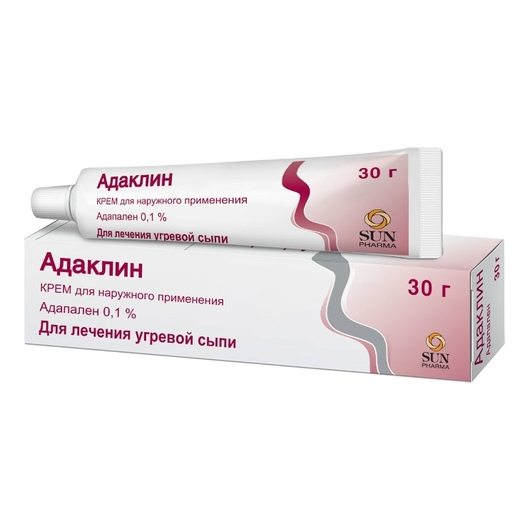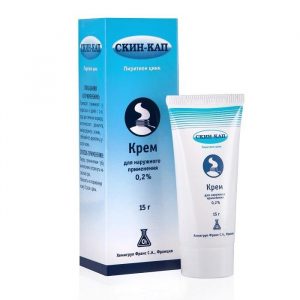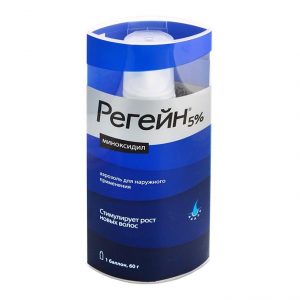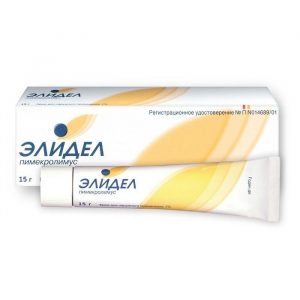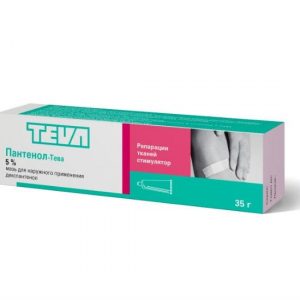Description
Pharmacological action
Adacline is a drug for external use. Adapalene is a retinoid metabolite, has comedonolytic and anti-inflammatory effects, normalizes the processes of keratinization and epidermal differentiation. The mechanism of action of adapalene is based on interaction with specific gamma receptors of epidermal skin cells.
As a result of the action of adapalene, in particular, there is a decrease in the “adhesion” of epithelial cells at the mouth of the sebaceous hair follicle and a decrease in the prerequisites for the formation of micro comedones. Adapalene has an anti-inflammatory effect in vitro and in vivo, acting on inflammation factors by inhibiting leukocyte migration in the focus of inflammation and arachidonic acid metabolism.
Absorption: absorption of adapalene through the skin is very low (about 4% of the applied dose). Excretion: Adapalene excretion from the body occurs mainly with bile.
Indications
Acne.
Contraindications
Hypersensitivity to the components of the drug Adaklin
pregnancy
lactation (breastfeeding)
children under 12 years of age.
Caution: the drug should be used with caution in dermatitis, eczema, seborrhea.
Use during pregnancy and lactation
It is not recommended to use the drug during pregnancy and during lactation (breastfeeding).
Special instructions
In case of accidental contact with the drug on the mucous membranes of the eyes, mouth or nose, rinse thoroughly with warm water. Direct sunlight should be avoided, as skin irritation may occur. Treatment can be continued if solar exposure is minimized through the use of sunglasses and hats.
The simultaneous use of cosmetics with a drying and irritating effect on the skin (for example, perfumes or ethanol-containing products) is not recommended. Adapalene, applied to the skin in the evening, can be combined with acne preparations used in the morning.
Composition
Active ingredient: 1 mg adapalene.
excipients: methyldextrose stearate 35 mg, macrogol (20) 35 mg, squalane (natural) 60 mg, methyl parahydroxybenzoate 2 mg, propyl parahydroxybenzoate 1 mg, disodium edetate 1 mg, phenoxyethanol 5 mg, glycerol 30 mg, carbomer (934P) 4 mg, cyclomethicone 130 mg, sodium hydroxide 0.5 mg.
Dosage and Administration
Externally. Before applying the cream, it is necessary to clean and dry the skin of the face. With a light touch, apply the cream evenly on the affected surface 1 time per day before bedtime, avoiding the drug on the mucous membranes of the eyes and lips. The therapeutic effect develops after 4-8 weeks of treatment, a persistent improvement occurs after 3 months of treatment. In some cases, due to short-term skin irritation, treatment may be suspended until the signs of irritation disappear. A second course of treatment is possible after consultation with a doctor.
Side effects
Dermatological reactions: skin irritation, hyperemia and peeling of the skin at the site of application (treatment must be suspended until the skin irritation disappears or the frequency of use is reduced).
Drug Interactions
Since adapalene does not interact with oxygen and does not break down under the influence of light, it is possible to treat acne with drugs such as clindamycin or benzoyl peroxide.
Overdose
Overdose is unlikely.
Storage conditions
Keep out of the reach of children at a temperature not exceeding 25 C.
Shelf life
2 years.
Deystvuyushtee substance
Adapalene
dosage form
cream
Appointment Appointment
Children older than 12 years, Adults
Ranbaxy Laboratoriz Limited, India

